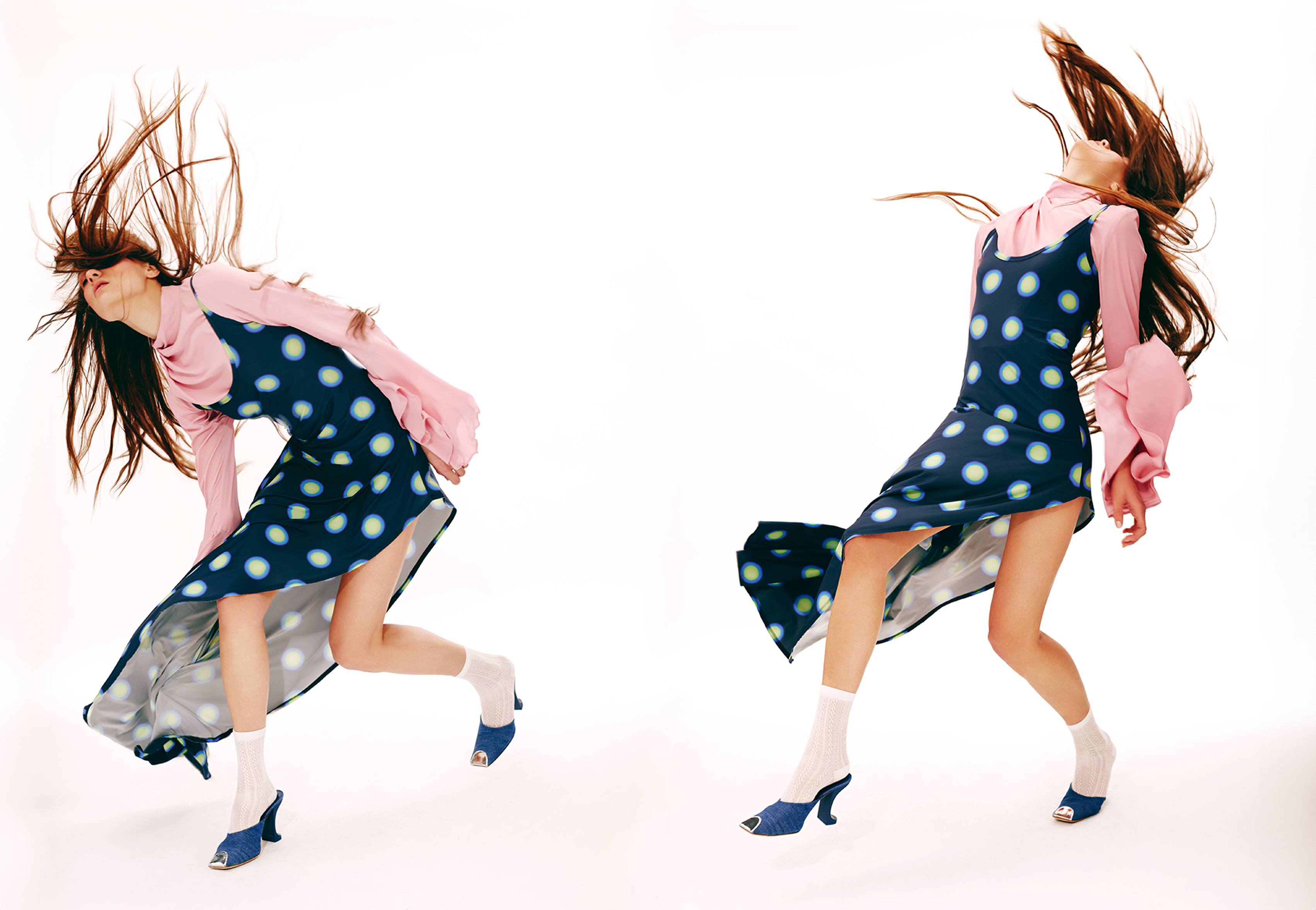
shoots | Jan 3, 2024
Blown Away

shoots | Oct 12, 2023
Part of the Furniture
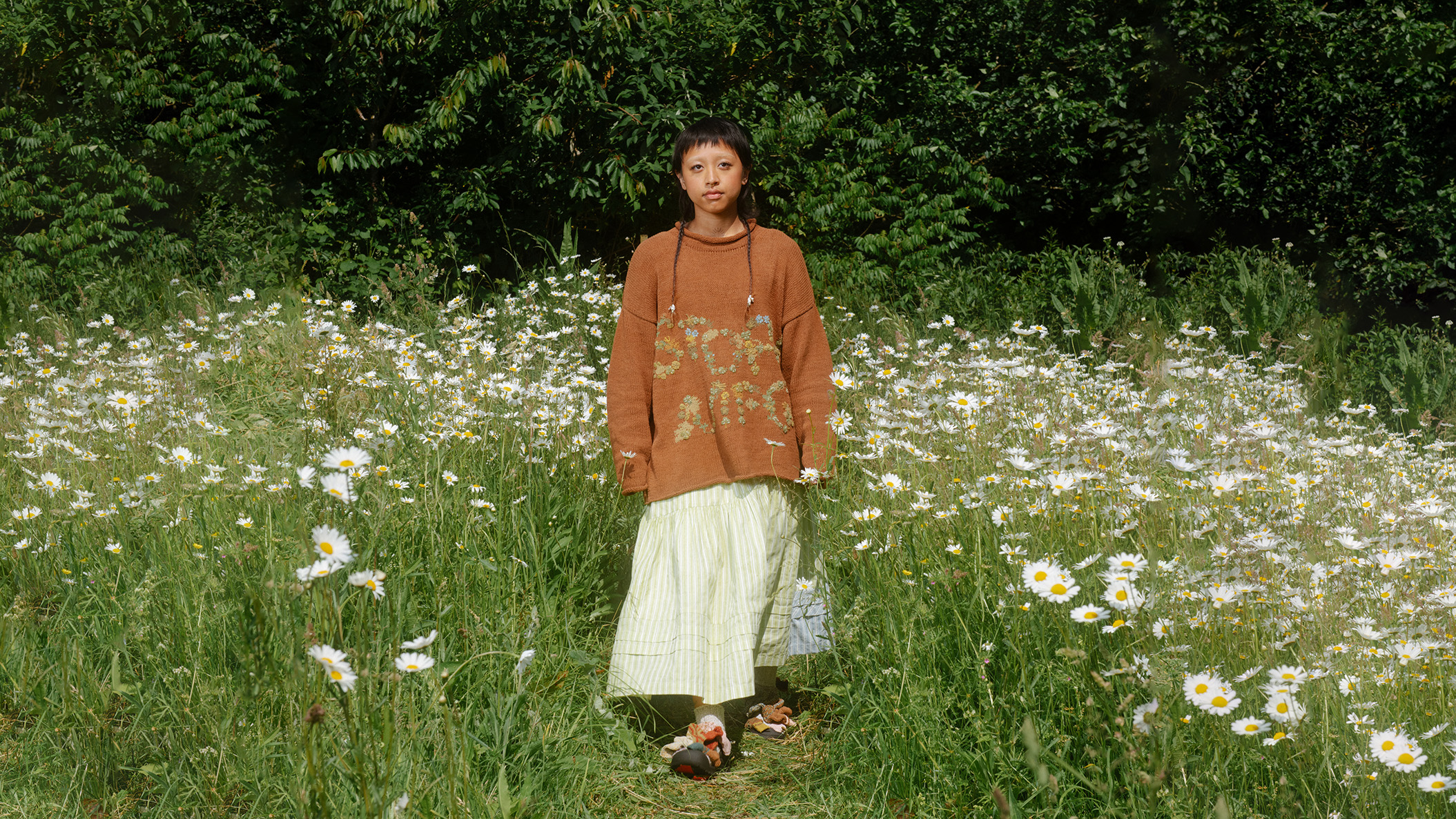
meets | Jun 18, 2024
Behind the Seams with… Story Mfg
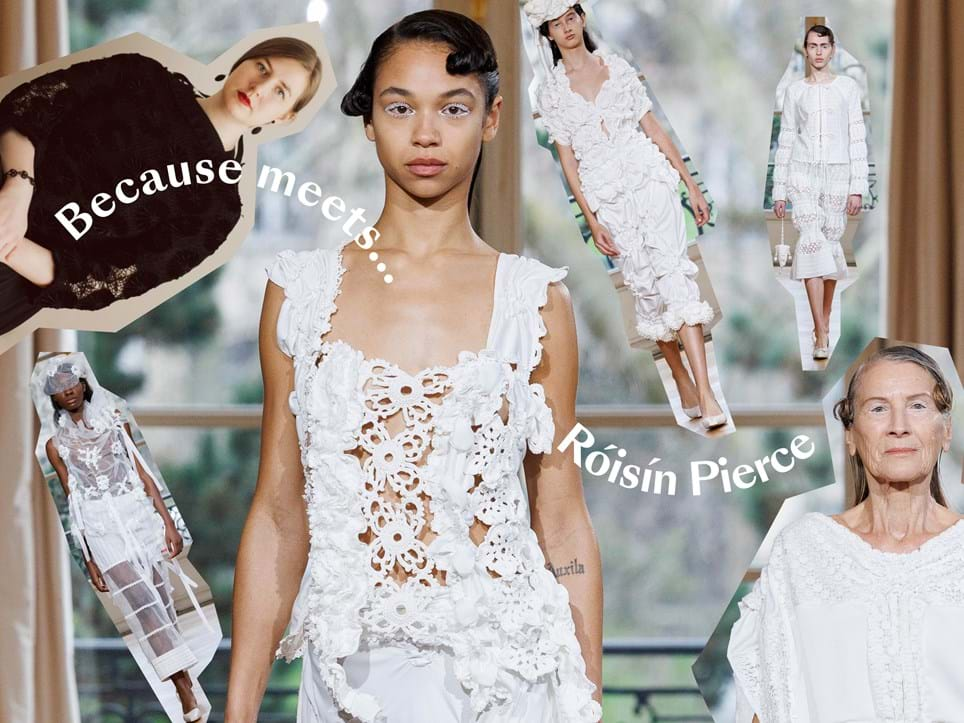
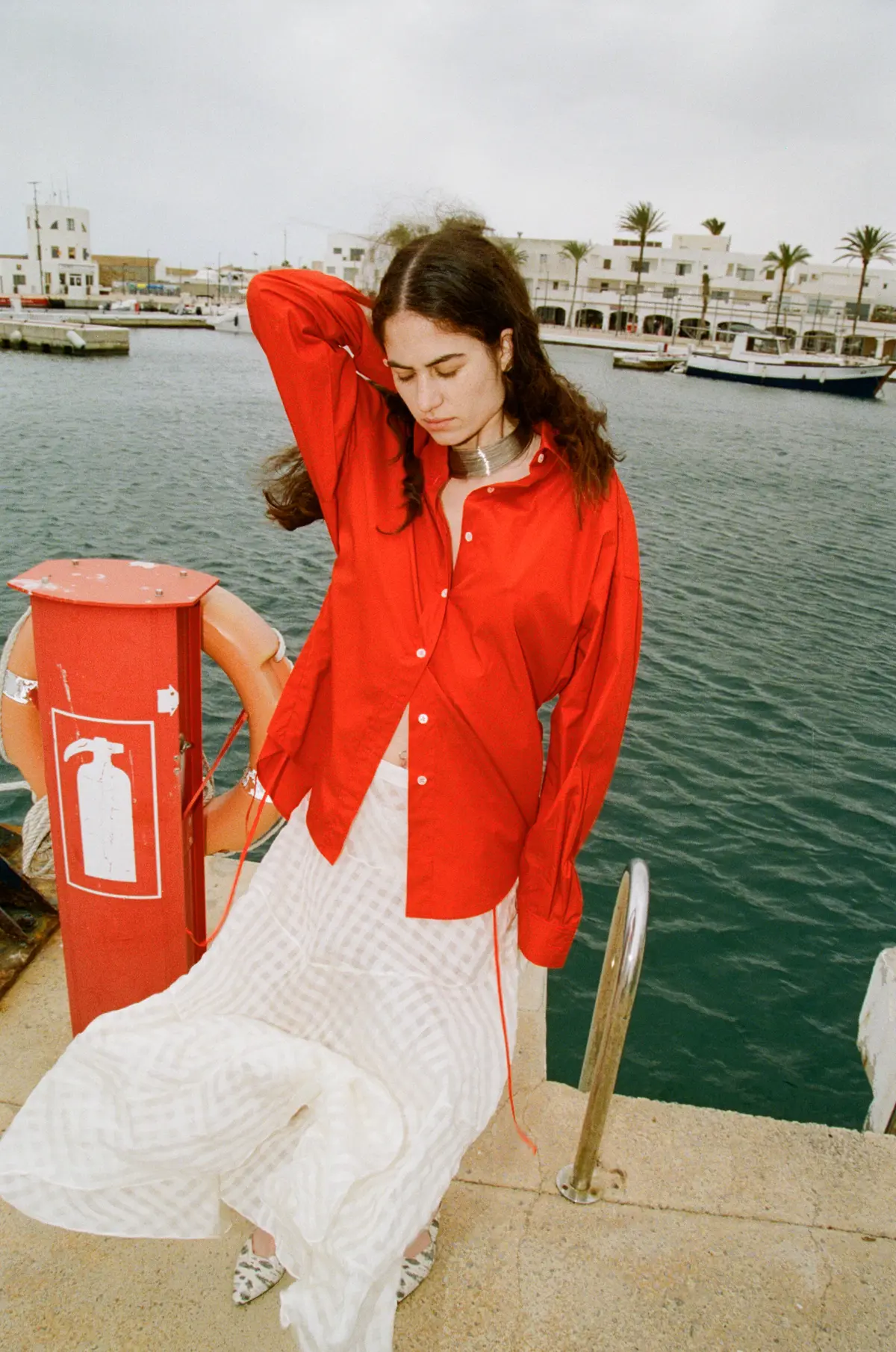
Behind the Seams with Serafina Sama
We sit down with the fashion designer doing things on her own terms
There’s been a paradigm shift in London’s fashion landscape. Once bound to the Fashion Week schedule, there’s a surge of designers stepping off the treadmill. Mounting costs to join the official timetable and relentless pressure to churn out collections at breakneck speed have resulted in a shared yearning to slow things down.
In 2019, Serafina Sama, the founder of fashion brand Isa Arfen, made a decision to step back. After successfully growing her independent business for seven years, the brand was bringing in £1.3mn in annual sales, according to the Financial Times, and had presented its first show on the London Fashion Week schedule merely a year earlier. With mass praise from the press, an already loyal customer base in London and 65 retailers globally, Isa Arfen was poised to take flight, but Serafina felt adamant about reassessing her trajectory. “I needed to take a deep breath and think about how to proceed on my own terms,” she says.
Serafina’s sentiment resonated with other UK-based brands after the tumultuous aftermath of Brexit caused rapid changes. Fashion went online, and became faster and more accessible, retailers were pushing for newness, the press shifted from print to digital, production and import fees skyrocketed – plus there was a global pandemic. Lots of smaller, independents prioritising slower, more sustainable approaches struggled to keep up with the new demands and thirst for newness – nor did they want to.
In December, Serafina made her grand return to fashion but this time on her own terms. “It’s never the right time in fashion so my comeback was completely personal,” she says, “I felt like I had something new to offer, something that I believe in and something that might not be available on the market right now.” Using the period away for introspection, and spending quality time with family, the designer rekindled her passion for making and refined her brand’s ethos.
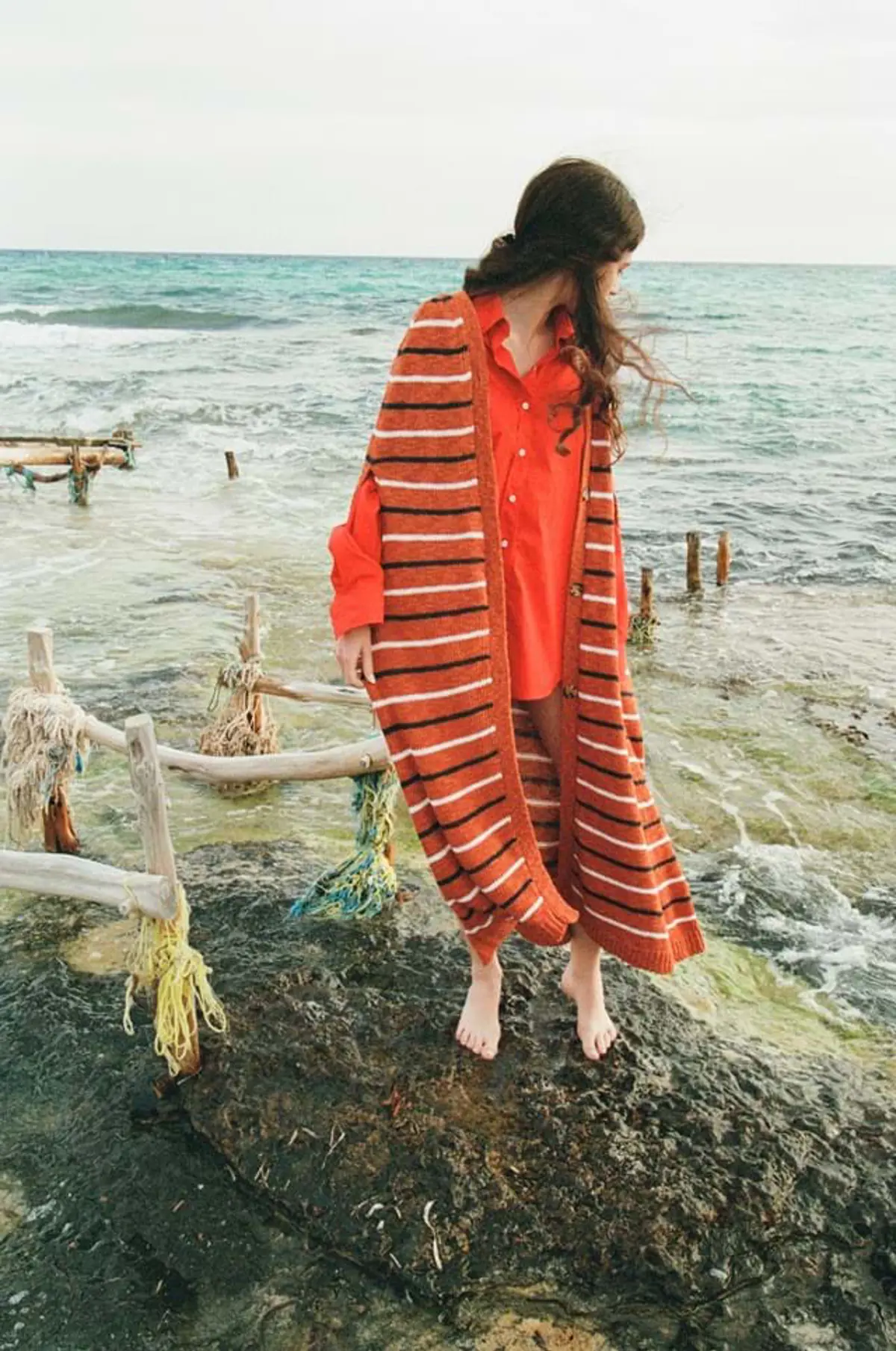
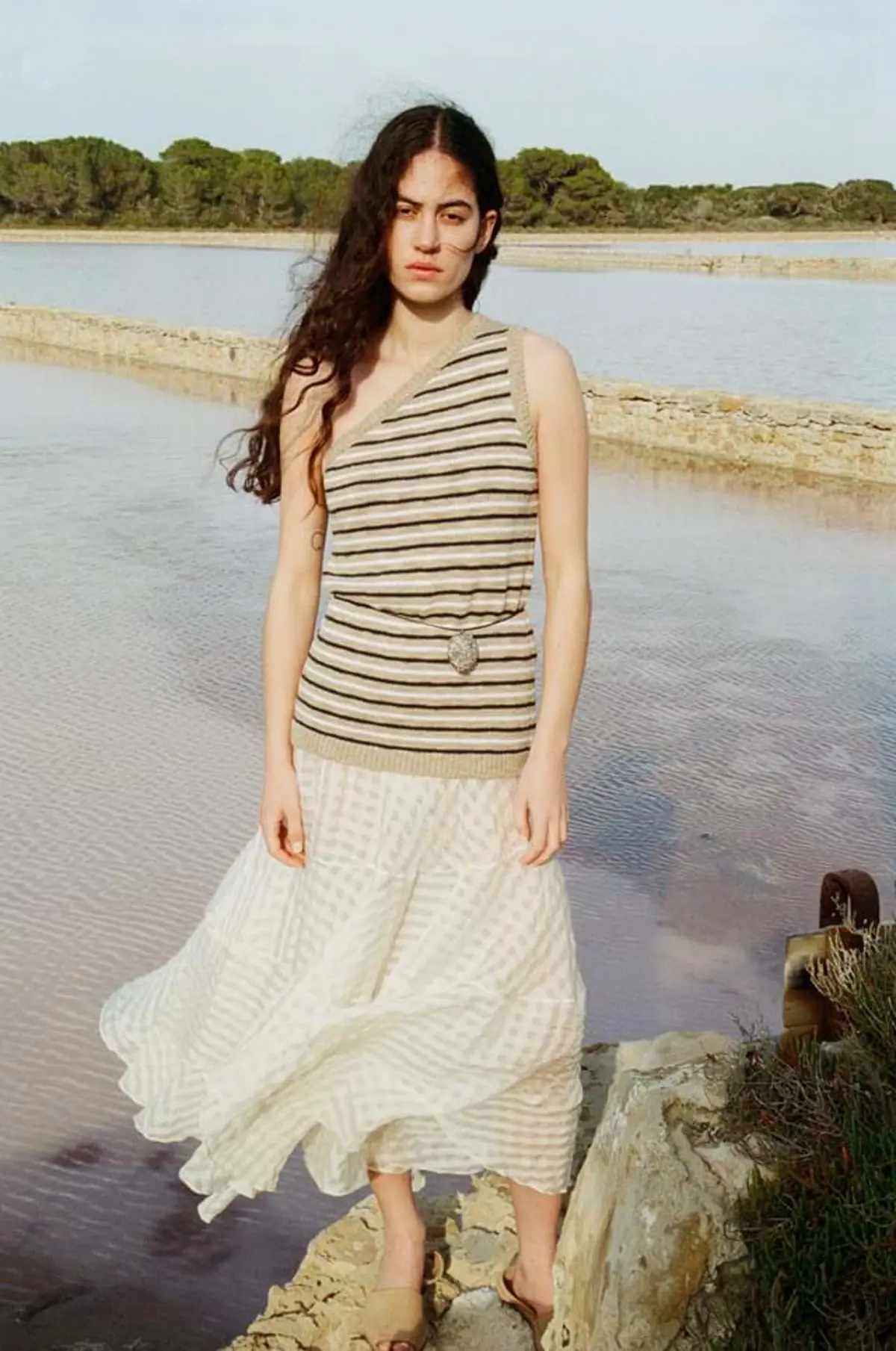
Isa Arfen’s revised approach is akin to newly launched brands like Phoebe Philo’s eponymous label and Angelina Jolie’s Atelier Jolie, which are both centred on small capsule collections, not prescribed to seasons and instead extensions of a curated, functional wardrobe. “I’ve always thought of the clothes that I make as something that would feel relatable and realistic, but desirable, something that despite its beautiful finishes and fabrics, still had a relaxed feel to it. It’s easy to wear and easy to incorporate,” she says.
The latest collection from Isa Arfen builds upon its signature aesthetic, with languid graphic cape silhouettes still a focal point, but this time reimagined in breezy linen and cotton three-gauge knit; layered over matching asymmetrical tops, as off-kilter twin-sets in unexpected proportions, or paired with classic relaxed shirts made from deadstock cotton. The brand’s ultra-feminine Twirl skirt from Summer 2019, designed with a spiral seam construction, makes a comeback in airy viscose silk for summer.
The new editions have been styled with archive Isa Arfen to pick up where the brand’s story left off. “I really believe in cherishing your clothes, buying something that you’ll keep in your wardrobe forever. So, I took existing pieces to show how easy it is to add new pieces that are part of the same story,” she says. Serafina aims to continue forging a community of like-minded shoppers who appreciate clothes that will last a lifetime.
This departure from convention marks a broader trend in the retail sector, as the luxury e-commerce landscape implodes. While multi-brand fashion marketplaces like Farfetch and Matches have fallen and Richemont-owned YOOX Net-a-Porter hangs in the balance, more independent designers are selling their products directly to consumers, cutting out the middleman, and broadening knowledge and understanding of buyers’ needs and preferences.
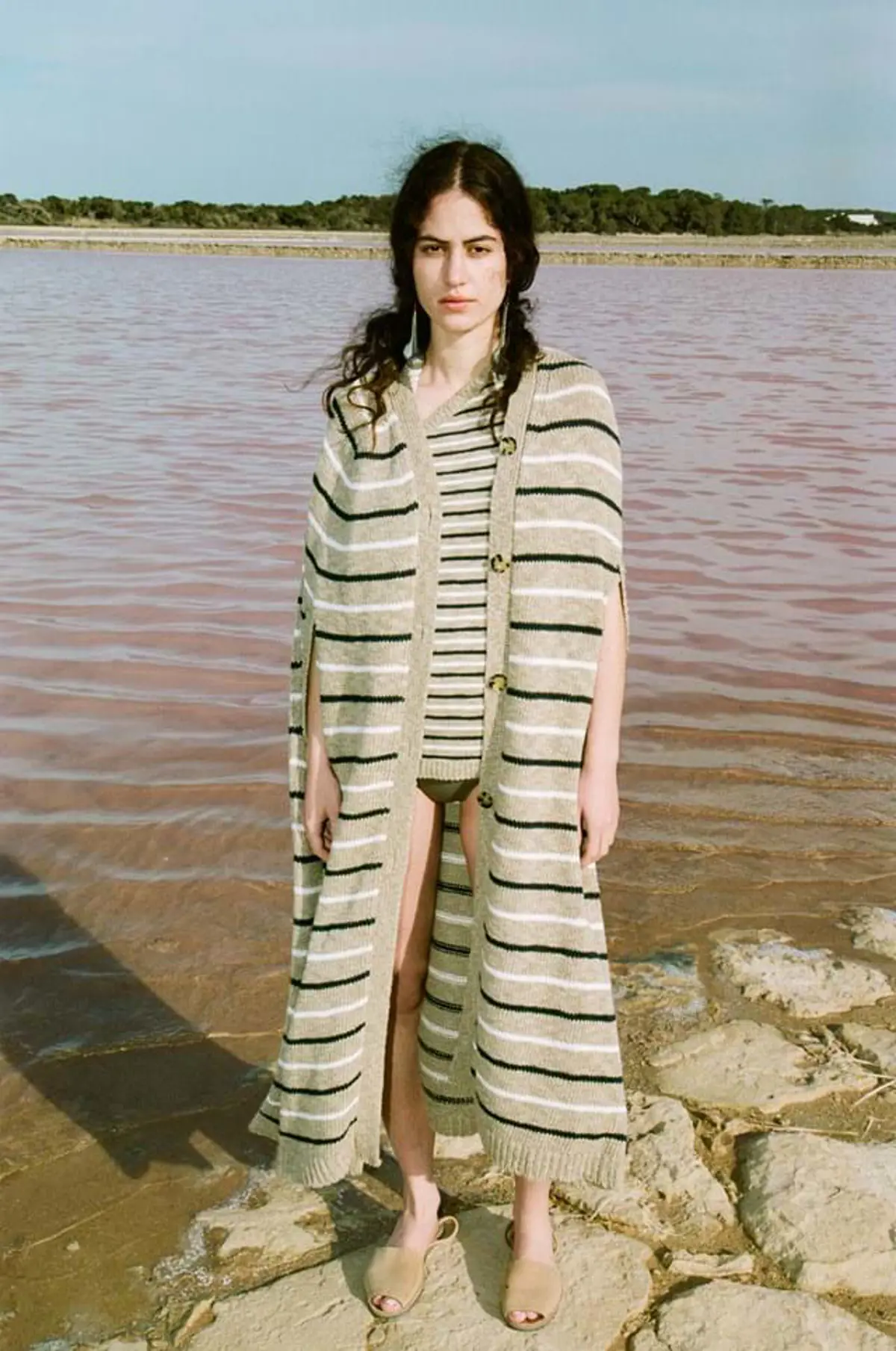
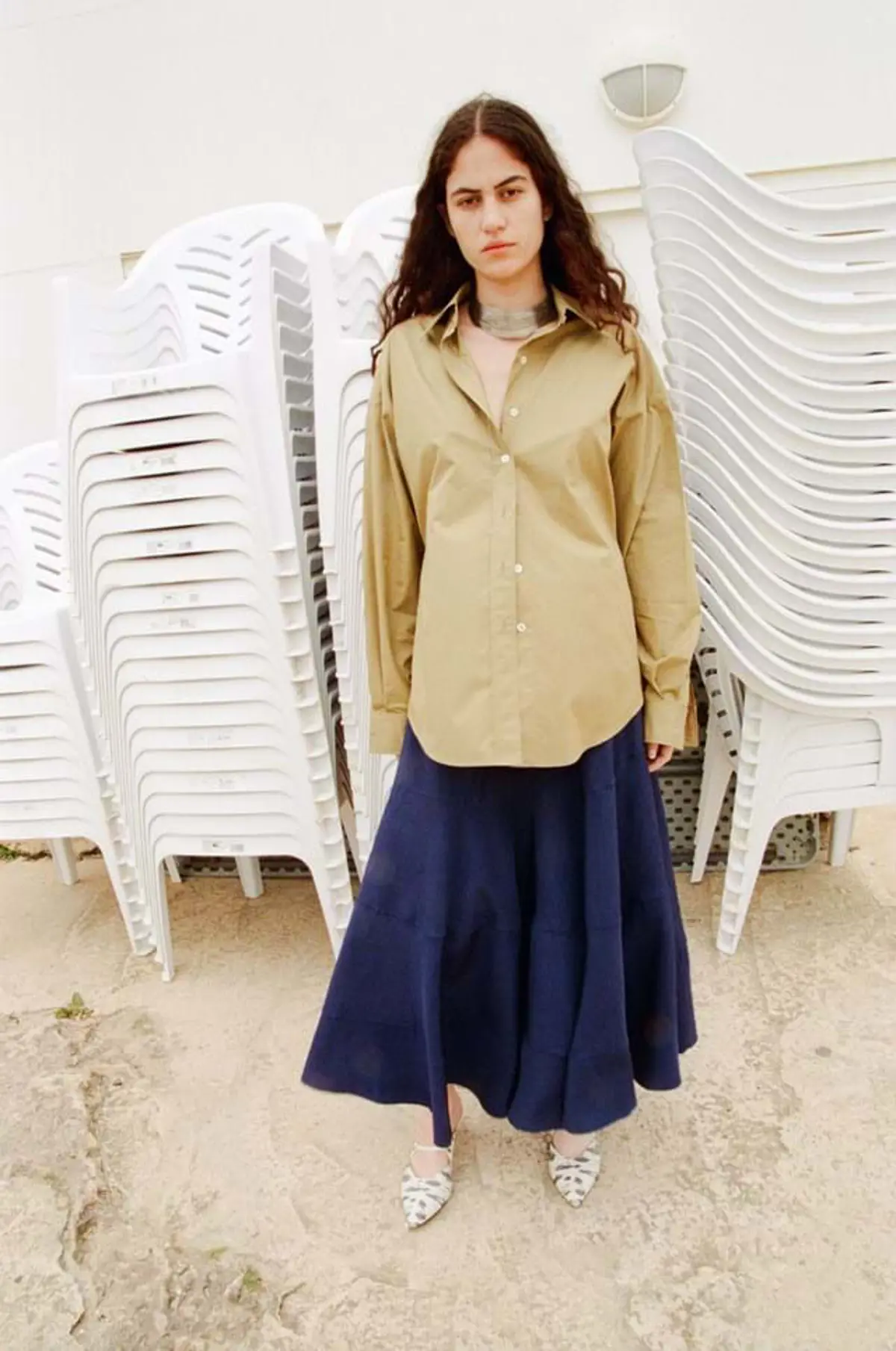
This new direction has started to repair the connective tissue, torn apart by overconsumption, between brand and buyer. Laying the foundation for a different approach to shopping, where customer loyalty is prioritised and relationships aren’t short-circuited.
“I’m not really a part of the machine right now, I’m in my own corner doing my own thing. In the future I would love for this to become a small universe where the new pieces exist alongside archival pieces,” she says with a smile. We, for one, are excited to have her point of view back in London fashion and orbit her small universe of beautifully crafted clothes once more.